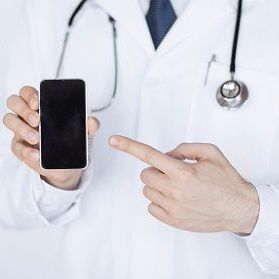Article
FDA Permits Marketing of reSET Mobile App for SUD Treatment
Author(s):
The reSET app is the first mobile medical application to treat substance use disorders.

The US Food and Drug Administration (FDA) has approved the marking of the first mobile medical application to treat substance use disorders (SUD).
The application, called reSET, is aimed to be used in conjunction with outpatient therapy to treat alcohol, cocaine, marijuana, and stimulant SUDs. It is not, however, intended for use with opioid dependence.
“This is an example of how innovative digital technologies can help provide patients access to additional tools during their treatment,” Carlos Peña, PhD., MS, director of the Division of Neurological and Physical Medicine Devices in FDA’s Center for Devices and Radiological Health said in a statement. “More therapy tools means a greater potential to help improve outcomes, including abstinence, for patients with substance use disorder.”
The FDA’s approval came based on the review of an unblinded, 12-week clinical trial involving 399 patients that received either standard treatment coupled with a desktop version of reSET or standard treatment alone. The application could be accessed at home or with the clinician. Results showed that adherence to abstinence was 40.3% for the patient group using the treatment in conjunction with reSET, compared with 17.6% adherence in the standard treatment alone group.
SUD was defined as when an individual’s consistent use of alcohol and/or drugs caused clinically and functionally significant impairment, including health problems, disability, and failure to meet major responsibilities at work, school or home.
The reSET app contains a patient application and clinician dashboard, in order to deliver cognitive behavioral therapy to patients in an attempt to teach users skills that aid in SUD treatment. These skills are taught with the purpose of increasing abstinence from substance abuse and to increase retention to outpatient programs.
The system, produced by Pear Therapeutics, uses a series of reward-based incentives to help patients adhere to the program. It is indicated as a “prescription-only adjunct treatment for patients with SUD who are not currently on opioid replacement therapy, who do not abuse alcohol solely, or whose primary substance of abuse is not opioids,” according to the FDA.
At the Consumer Technology Association 2017 Digital Health Summit in January, Corey McCann, MD, PhD, chief executive officer of Pear Therapeutics called the application a possible "watershed moment for digital health," and reported at the time that there had been positive conversation with the FDA.
Related Coverage
Opioid Use Disorder Injection Drug Gets FDA Priority
Mental Health Care Websites Used More by Patients with Severe Depression
Despite Joint Care Effectiveness, PCPs Face Barriers for Success





